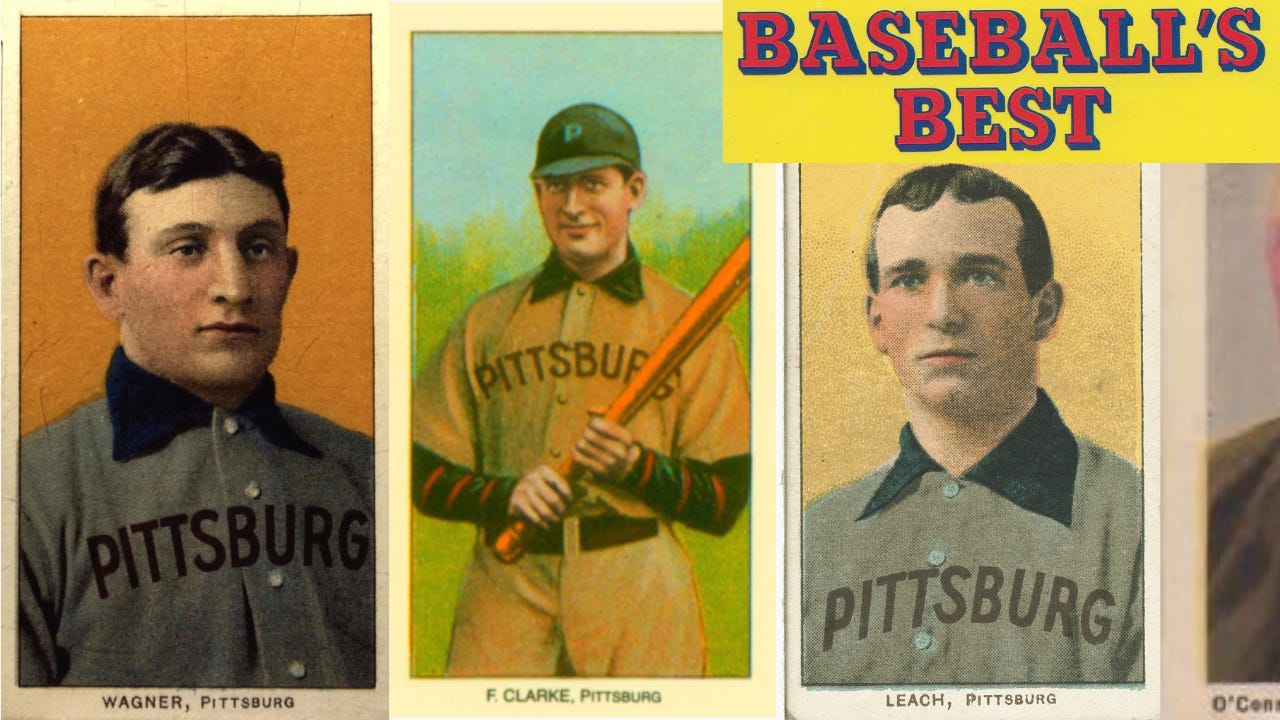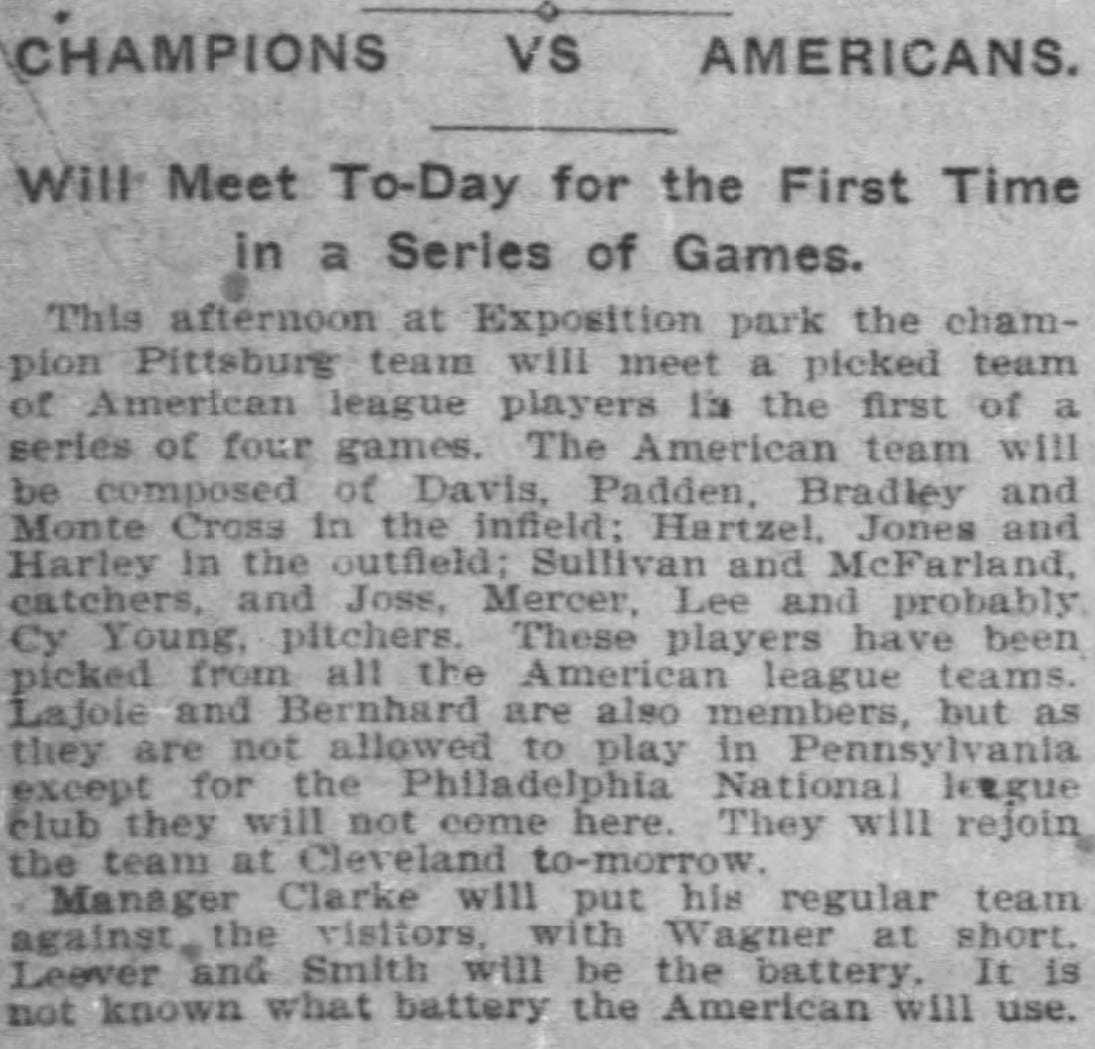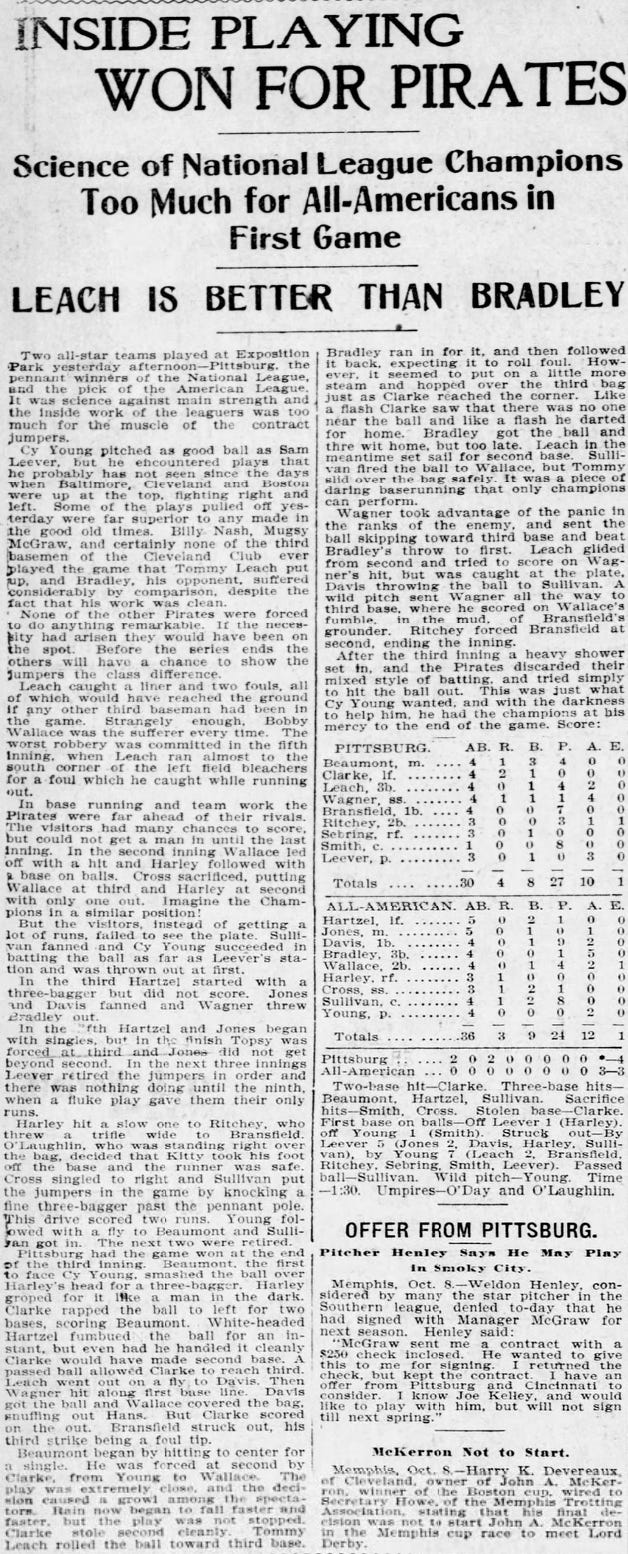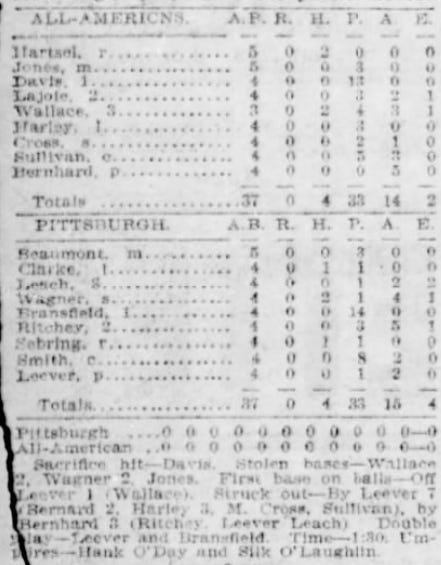The 1902 World Series
There was an American League - National League postseason meeting at the end of the 1902 season.
I’m not kidding. Yes, it really did happen. Let’s dive right on in.
The earliest mention of a postseason series in 1902 comes from the beginning of September, from what I’ve been able to gather:
I haven’t been able to find earlier sources indicating that a potential World Series might have been in the works. There certainly is more room for research on this subject.
Within a week, at least one Pittsburgh newspaper reported that the series was a sure thing:
Note that the Pirates had already clinched the National League pennant. They clinched the title on September 2nd, which remains to this day the earliest date a pennant was clinched.
Some books, such as Ronald T. Waldo’s book on the 1902 Pirates, mention this postseason series. To my understanding, most sources that mention the series take their information from Sporting Life, which picked up on the story and made it front page news around this time.
The initial plan was for a best-of-seven series. At some point in time this changed to a best-of-five series, with 4 games guaranteed to be played: two in Pittsburgh and two in Cleveland. A potential 5th game was planned for Cleveland.
The Pirates, of course, predicted that they wouldn’t need a fifth game.
These games were actually a really big deal in the Pittsburgh press. They’ve been ignored largely because baseball researchers have by and large not looked into day-by-day newspaper accounts, preferring instead to put their trust in the weekly papers like The Sporting News and Sporting Life — if they used original newspaper sources at all, that is.
The first game was played on October 7.
As you can see, the Pittsburgh press largely ignored what the American League did at bat. For contrast, here’s an account of the same game from Cleveland:
Game 2 was another tight one — and the Pirates prevailed again, leading to this headline in The Pittsburgh Gazette:
When the Pirates headed to Cleveland, they were apparently accompanied by a group of fans, though it’s not clear how many there were:
And the third game was an all time classic.
This 0-0 draw technically gave the Pirates a series win. The game would not be made up, as the American League All Stars had a strict barnstorming schedule to adhere to.
Game 4, in the end, was a bit anti-climactic.
Interestingly, the press sentiment seemed to be that the Pirates were better off playing an all-star team than the Philadelphia Athletics:
There are a few other tidbits here that can help us in the “greatest team of all time” discussion:
The Pirates won this series with only 2 pitchers. Tannehill had been released right before the series started, and Chesbro was released between games 2 and 3. Both played for the New York Highlanders in 1903.
The Pirates only used 11 players in the 4 games — a feat that beats the postseason performances of the 1976 Cincinnati Reds and the 1905 New York Giants. Pittsburgh only used 2 pitchers and 2 catchers in addition to the other 7 regular starters. There is good reason to suspect that the Pirates simply had nobody else on the bench.
The All-Americans only managed to score 4 runs in 4 games, 3 of which came in the top of the 9th of the first game.
The All-Americans only had 23 hits in 4 games. Again, this is even more remarkable when you consider that the All-Americans were an all-star team that faced only 2 pitchers.






























How is your 1949 replay going? Inquiring minds want to know.
Very interesting and well-researched. Bravo.